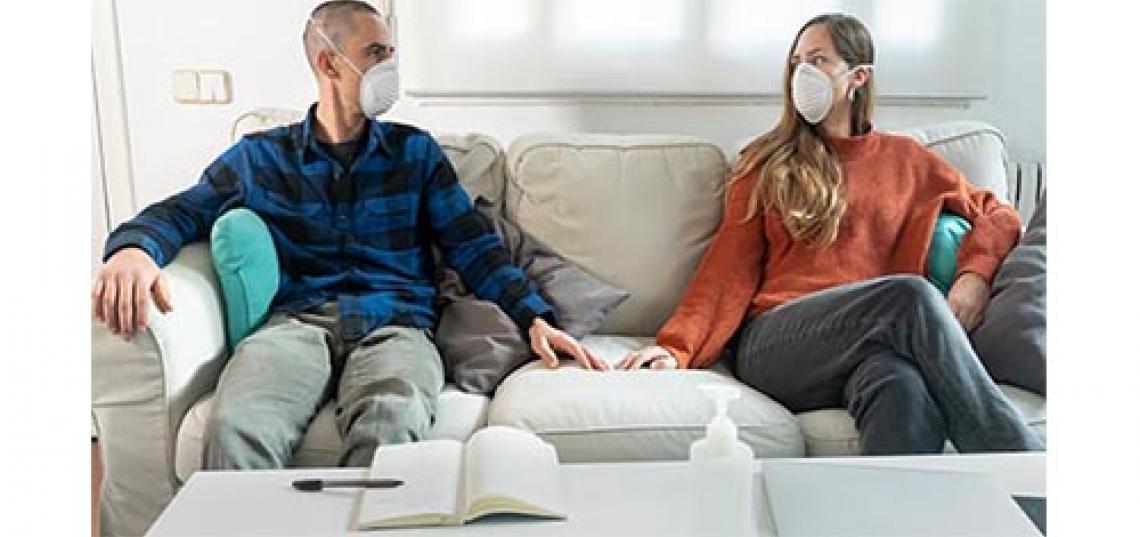
By Megan Schumann, Rutgers University Office of Communications
Making jokes about COVID-19 to alleviate stress is not necessarily a good way to communicate with your spouse or keep your relationship intact, according to a study by Rutgers and other researchers.
Instead, keeping up communication, networking with others, and maintaining a sense of self, is more apt to keep you together, researchers report in findings published in the Journal of Social and Personal Relationships.
“Humor isn’t necessarily bad, but it isn’t always guaranteed to help because its intention is not always clear. This ambiguity can have implications for how messages are received and consequently can influence what a partner thinks about a relationship.”
In April 2020, shortly after the worldwide pandemic began researchers asked married people how they talked with their spouse using the “communication theory of resilience,” a theory that describes positive communication process that can help individuals manage stress and critical life events
The results show that when couples create a sense of normalcy or a new routine, stay connected with their network, understand a sense of self, and think positively, they experience less anger and uncertainty about their relationship. Using these tactics improved how couples deal with everyday stress and critical life events.
“We found that, except for humor, these resilience processes improve confidence in a relationship,” said Maria Venetis, an associate professor of communications at Rutgers School of Communication and Information. “Humor isn’t necessarily bad, but it isn’t always guaranteed to help because its intention is not always clear. This ambiguity can have implications for how messages are received and consequently can influence what a partner thinks about a relationship.”
Those who fear losing their partner might also overestimate how well they are working together to reassure themselves that the relationship will not end.
Surprisingly, people who experienced fear during interactions with their partners believed they were coping well with the pandemic as a couple. The findings suggest fear may motivate a person to engage in behaviors that improve the way couples cope with stress together. Those who fear losing their partner might also overestimate how well they are working together to reassure themselves that the relationship will not end.
The researchers say the results may help couples experiencing uncertainty in their relationship—about the relationship's future, the partner’s commitment, or one’s own relationship goals—and those experiencing anger resulting from COVOD-19 stress. Such uncertainty commonly occurs during transitions and crises and is linked to depression, communication dissatisfaction, negative emotions, and distrust.
The researchers encourage couples to craft a routine by reinstating pre-disruption normalcy or create a new normal, talk with their social circles to alleviate stress, validate their sense of self, and reinforce their unique identity traits or values. It’s important, researchers say, to focus on potential positive feelings–feeling hopeful and lucky–and acknowledging the challenges or negative feelings that are causing the stress.
Learn more about the Communication Department at the Rutgers School of Communication and Information on the website.
This article originally appeared on Rutgers Today on August 17, 2021.
